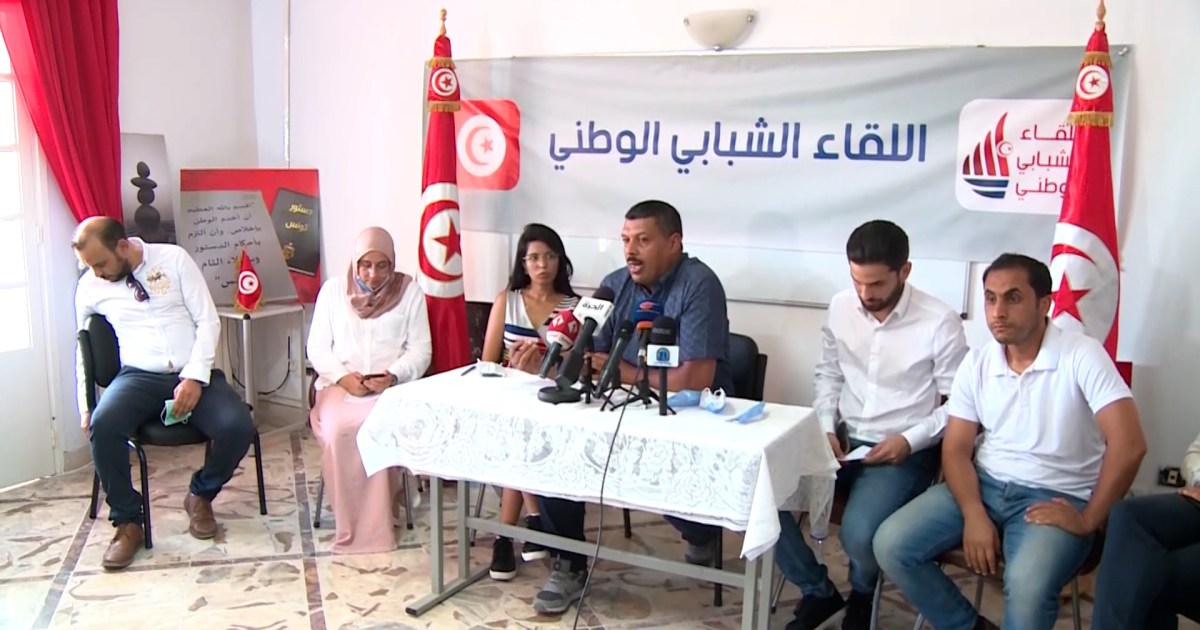Several parties and human rights organizations in Tunisia called for new protests to take place in the center of the capital on Friday and Saturday, in opposition to the constitution submitted for a referendum on July 25.
The "For a Democratic Civil State" coalition, which includes a number of civil bodies and organizations, is organizing - on Friday - a protest sit-in on Habib Bourguiba Street;
To express his rejection of the new draft constitution and a referendum on it.
Meanwhile, the National Salvation Front called for new protests in the center of the capital tomorrow, Saturday.
The Front - which includes independent politicians and parties, including the Islamic Renaissance Movement and political movements - accuses President Saied of overthrowing the 2014 constitution and establishing individual rule.
Next Monday, Tunisians are scheduled to go to the polls for a referendum on a new draft constitution that grants broad powers to the president, amid fears of an "authoritarian deviation."
Saeed presented a draft constitution in an initial version, and then made more than 40 amendments related to "leaked errors", whether at the level of linguistically editing the clauses or adding new vocabulary.
The Election Commission has registered more than 9.3 million voters, and the polls are scheduled to open their doors from 5 am to 9 pm GMT.
Experts expect that the turnout will be low, given the controversial path during the preparation of the new draft constitution.
political division
Saeed had called on citizens - through a statement on 5 July - to vote "yes" on the project.
He said, "There is no fear for rights and freedoms if the legal texts place the majority under popular control, whether within the Parliament or the Council of Regions and Regions."
The Ennahda Movement, Qalb Tounes, the Dignity Coalition, the Tunis Movement, called for Will and Hope, the Republican Party, the Democratic Current, the Democratic Bloc for Labor and Freedoms, and the Labor Party;
To boycott the referendum and consider it an "illegal process".
He also called on: the Qutb Party, the Popular Will, Labor and Achievement, the Unified Democratic Patriots, the Journalists Syndicate, and the "Citizens Against the Coup" campaign;
to boycott the referendum.
While the Tunisian General Labor Union - the largest trade union in the country - left the freedom of decision to its supporters.
In contrast to the parties rejecting or boycotting the referendum, some parties announced their intention to participate and vote “yes.” These parties include: the People’s Movement, the Popular Current, Tunisia Forward, and the Alliance for Tunisia.
human rights criticism
The head of the Tunisian Association for the Defense of Individual Liberties, Wahid Ferchichi, confirmed the association's rejection of the text of the draft constitution submitted to a referendum, stressing that it contains fallacies and falsification of history.
Fershishi referred - in a press conference - to a number of what he described as dangers, including the absence of the civil state and the weakness of institutions in exchange for the growing power of the ruler.
He added that restrictions have been placed on individual rights and freedoms, which would detract from or even strike them.
On the other hand, the head of the Independent High Authority for Elections in Tunisia, Farouk Bouaskar, confirmed that the authority monitored attempts to change polling stations for voters and political figures.
Bou Askar said that the aim of these attempts is to create chaos and confusion on the polling day, scheduled for July 25.
Judiciary crisis
In a related context, the defense committee for the judges covered by the decision to exempt them from their positions in Tunisia said that the exemption decree is unconstitutional.
The commission confirmed - in a press conference in the capital, Tunis - that the judges concerned had submitted appeals against President Kais Saied's decision to exempt them.
For his part, Anas Al-Hammadi, head of the Association of Tunisian Judges (Independent) said - on Tuesday - that the judiciary in the new draft constitution "will never be independent, and it will be subordinate to the executive authority, and its rulings and decisions will follow its orders."
Al-Hammadi added during a press conference in the capital, Tunis: "It is necessary to pay attention to the danger of the draft constitution to the democratic system, the rule of law and rights and freedoms."
He considered that the word “judiciary function” stipulated in the draft constitution, was studied and developed for clear reasons, because the authority is governed by independence and the function is subordinate.
In early June, Saeed issued a presidential order dismissing 57 judges from their duties on charges including "disrupting investigations" into terrorism files and committing "financial and moral corruption", which the judges deny.
In rejection of this presidential order, 5 judges are on hunger strike, and most of the judges have started an open strike supervised by the Judicial Structures Coordination, which includes associations and unions of judges.

